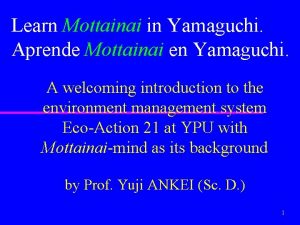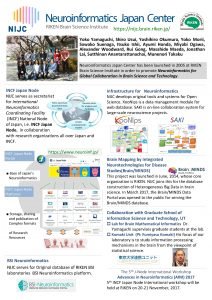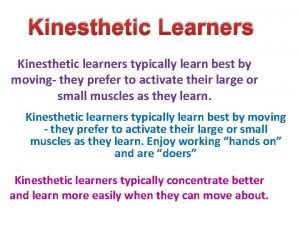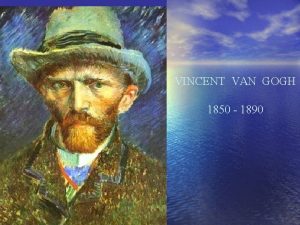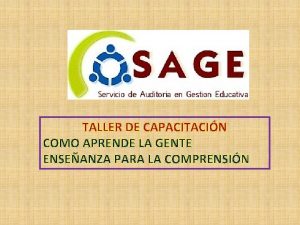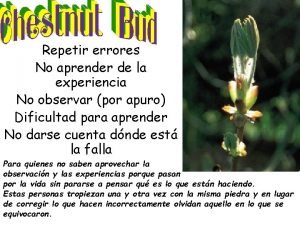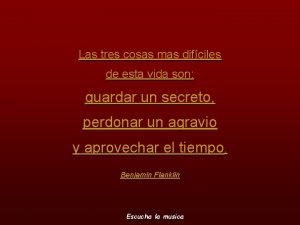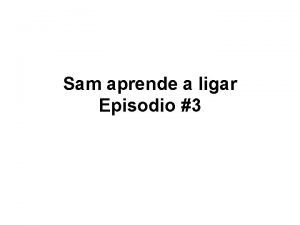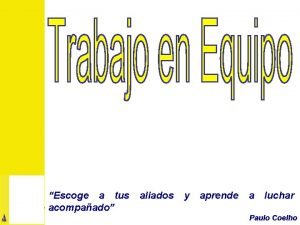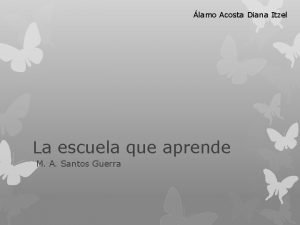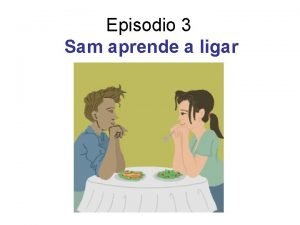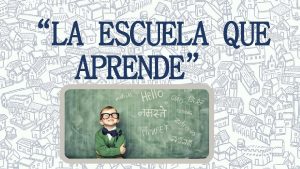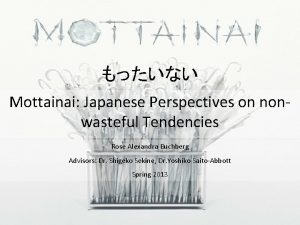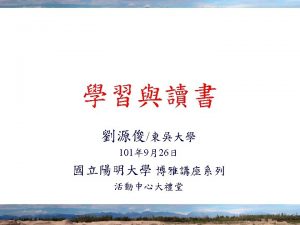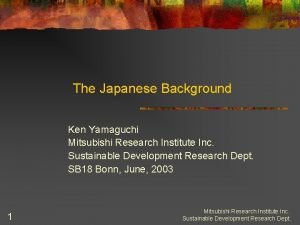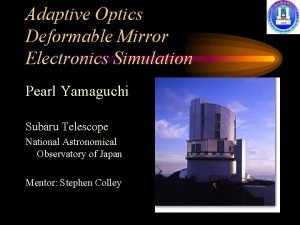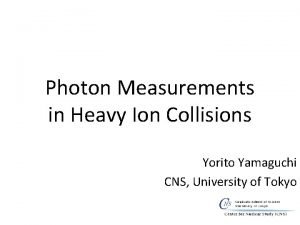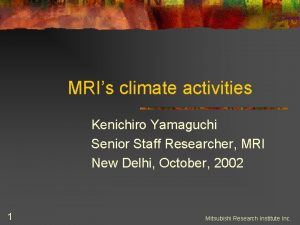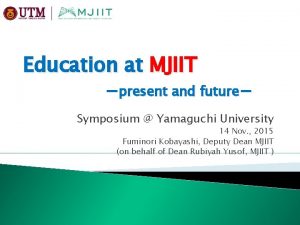Learn Mottainai in Yamaguchi Aprende Mottainai en Yamaguchi
















- Slides: 16

Learn Mottainai in Yamaguchi. Aprende Mottainai en Yamaguchi. A welcoming introduction to the environment management system Eco-Action 21 at YPU with Mottainai-mind as its background by Prof. Yuji ANKEI (Sc. D. ) 1

Mottainai as an international word Kenyan environmentalist Wangari Maathai, who was awarded the Nobel Peace Prize, tried to seek out zn equivalent word for “Mottainai” in other languages, but in vain. No single word was found that includes the mind of respect and love for things and that means the concept of “Reduce (consumption), Reuse, Recycle, Repair”. So she uses the word “Mottainai” itself as an international 2 lexicon.

Mottainai = wasteful? • • • Mottai + nai = lack or neglect of mottai Mottai = Due respect for the inherent, irreplaceable value in a thing or a person. Mottainai is somewhat a religious term to refer to abuses against the animistic cosmology of traditional Japan →Bachi = Punishment from deities (not a simple bad luck) • Cf. Mottaiburu, Mottai wo tsukeru = to give excessive value to small things 3

Examples • Treading the earth with too big an ecological footprint is mottainai = not sustainable. If all humankind prefered to live like an average Japanese, we’d need at least another globe to sustain us. • ISO 14001 is mottainai as an EMS for the scale of YPU. = too expensive • Throwing away still recyclable materials is mottainai. = inappropriate because they need proper sorting. 4

What is ecological footprint? • • The phrase "ecological footprint" is a metaphor used to depict the amount of land water area a human population would hypothetically need to provide the resources required to support itself and to absorb its wastes, given prevailing technology. The term was first coined in 1992 by Canadian ecologist William Rees From Wikipedia, the free encyclopedia 5

Ecological footprint of the nations Source: http: //pthbb. org/natural/footprint/img/cartogram. gif 6 http: //www. environment. sa. gov. au

• "There is enough for everybody's need, but not enough for anybody's greed, " said Gandhi. 7

Why Environmental Management System (EMS)? • • Safe working environment Legal compliance Reduced waste Pollution prevention Competitive advantage in research Enhanced internal management efficiency Incentives for Environmental Stewardship YPU is the first university in Japan to adopt EA 21 certified EMS of the Ministry of Environment 8

EMS Model (PDCA cycle) Continual Improvement Environmental Policy Management Review by Chancellor Checking & Corrective action Planning Implementation 9

EA 21 (Eco Action 21) • Specification standard for EMS, similar to the international ISO 14001 • Contains only those requirements that may be audited for certification • Provides framework for EMS and based on Deming’s Model of Management • Plan-Do-Check-Act • EA 21 was created in Japan for small-scale offices and companies (since Nov. 2004) 10

Benefits • • • Create a safe working environment Enhance career opportunities Resume enhancing Grab research grants Audit the Management system 11

Students’ role and responsibility • • Students are the most important members of YPU as we aim at a Mottainai campus. Understand our Environmental Policy. Follow established work procedures, and try yourself to make them more fruitful. Join environmental activities directed by the student committee. 12

Environmental targets for 2006 • • • Reduce electricity consumption (minus 5%) Reduce paper use (minus 3%) Reduce water use (minus 3%) Properly sort all the trash (100%) Reduce trash (minus 3%) Park cars and bicycles in designated parking areas only (100% by 2009) 13

Where to throw away this waste? A practical manual on and off the campus 14

Sorting trash boxes made by YPU students ←おたすけ ばこ “Help me” trash box 15 for poor sorters.

Acknowlegments • • • EA 21 committee of YPU provided me with the basic information. This presentation was partly adopted from the following webpage: http: //campus. umr. edu/ems/Whats_New/New sletter/Mani-Ems. ppt written by Mani Balakrishnan (M. S. Environmental Engineering-UMR) Prof Marylin Higgins of YPU polished the text. 16
 Bidou yamaguchi
Bidou yamaguchi Bidou yamaguchi
Bidou yamaguchi Yoko yamaguchi
Yoko yamaguchi Kinesthetic learner
Kinesthetic learner Empatia se aprende
Empatia se aprende Aprende del agua facundo cabral
Aprende del agua facundo cabral Borges aprendiendo 1884
Borges aprendiendo 1884 Aprende middle school
Aprende middle school Que es la traxolina
Que es la traxolina De los errores se aprende y de las experiencias
De los errores se aprende y de las experiencias Las tres cosas mas dificiles de la vida
Las tres cosas mas dificiles de la vida Ligar en internet
Ligar en internet Aprende a luchar
Aprende a luchar Com.o tempo você aprende
Com.o tempo você aprende La escuela que aprende y la sociedad neoliberal
La escuela que aprende y la sociedad neoliberal Sam aprende a ligar
Sam aprende a ligar The great gatsby chapter 4 analysis
The great gatsby chapter 4 analysis
